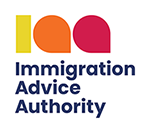
Call 0207 654 3797
info@hpassociates.uk.com
Naturalisation is the most common way for adults who were not born British to become British. People who hold Indefinite Leave to Remain (ILR) can, subject to fulfilling the requisite residence requirements, apply for naturalisation as British Citizens. It is necessary to demonstrate sufficient knowledge of the language, and of life in the UK, and to be of good character. There are many forms of British nationality, in addition to British Citizenship. For example, British Overseas Territories Citizenship, or the status of being a British Subject or a British National (Overseas). Unlike British Citizenship, these other forms of British nationality will not normally give you a right to live in the UK, although they may be a step on the road to becoming a British Citizen and also give you a wider range of opportunities to make immigration applications, for example applications based on UK Ancestry.
Registration is the only way in which children can become British and is also used for adults in special circumstances. It is necessary for those over ten years old to be of good character, but it is not necessary to demonstrate knowledge of the language or of life in the UK. Some changes to the categories of people eligible for registration, notably the children of serving members of the Armed Forces, children born outside the UK to British citizens "by descent", British Nationals (Overseas) who have no other citizenship or nationality and the children of British mothers, whenever they were born, were included in the Borders, Citizenship and Immigration Act 2009. These changes took effect on 13 January 2010.
For further information please call 0207 654 3797 or email info@hpassociates.uk.com.

